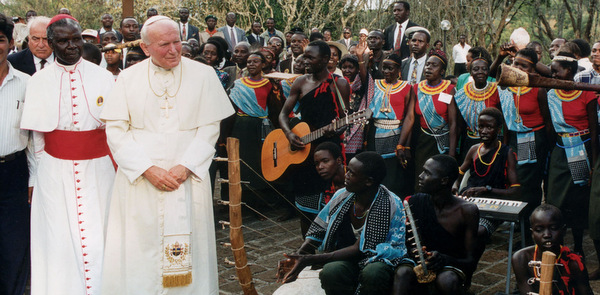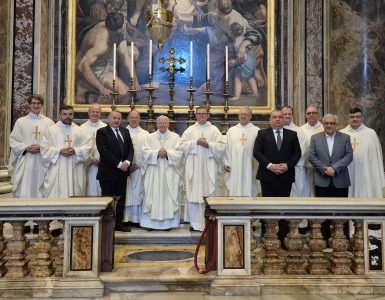Now, it would be necessary to emphasize the importance of another great season of the itinerant ministry of the Holy Father. It is about travel to the missionary regions of Africa and Asia. He later communicated this experience in one of his most significant documents, the encyclical Sollicitudo rei socialis, in which, by updating the horizons of the Church’s social doctrine and showing in particular the moral dimension of development, he denunciated the growing gap between the rich North and the poor South and pointed to the need for cooperation between peoples in a spirit of solidarity.
It must be said that, in particular, the African experience has helped John Paul II to know from within the situation of many countries which in the recent past have gained political but not economic independence and have often been embroiled in tribal, racial and religious conflicts. The Pope has repeatedly supported the re-recovery of these countries, demanding that their sovereignty, their national and cultural identity be respected. The Pope did not hesitate to criticize openly the corruption of some of the ruling classes, as well as the deplorable exploitation of the population by those in power. Of the many journeys, I will limit myself to remembering the pilgrimage to the island of Gorée in Senegal, from where millions of black slaves on ships bound for the Americas set off in handcuffs. The Holy Father had no text because no speech was foreseen. In the speech he improvised in French, slowly saying words, included all his emotion, his suffering, and his dismay at the sight of a place where people who consider themselves Christians became responsible for such a terrible attack on the lives of other men and women and even children.
With the permission of Cardinal Stanisław Dziwisz – “At the side of the Saint”
St. Stanislaw BM Publishing House, Krakow 2013





